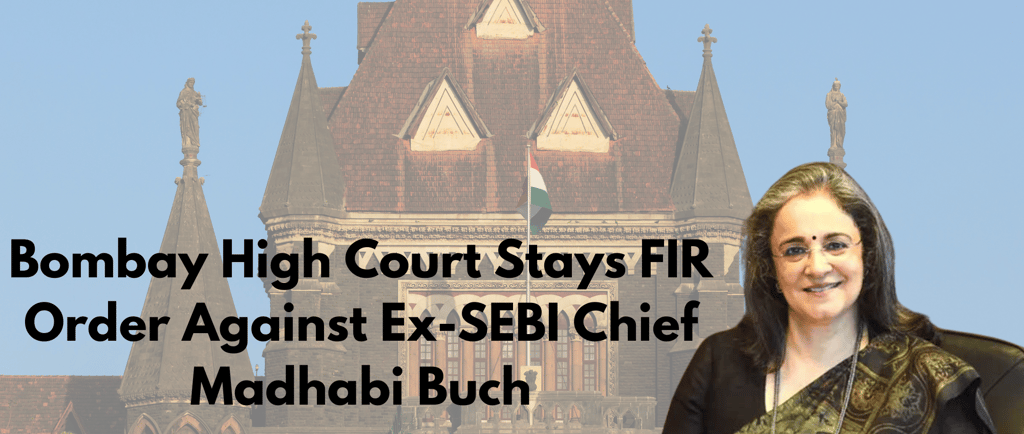Bombay High Court Stays FIR Order Against Ex-SEBI Chief Madhabi Buch
The Bombay High Court stayed an order directing the registration of an FIR against former SEBI Chairperson Madhabi Puri Buch and other SEBI and BSE officials in connection with an alleged listing fraud case. Justice SG Dige granted relief, observing that the special court’s order appeared to have been issued mechanically, without examining specific details or attributing any clear role to the accused individuals. The court noted that the complainant has been given time to file a reply, and until further hearings, the order remains stayed.
3/4/20251 min read


The case pertains to allegations of financial fraud related to the 1994 listing of a company on the Bombay Stock Exchange (BSE). A media reporter, Sapan Shrivastava, filed a complaint accusing SEBI and BSE officials of permitting the listing of a fraudulent company, resulting in investor harm. The respondents include former SEBI Chairperson Madhabi Puri Buch, current SEBI whole-time directors Ashwani Bhatia, Ananth Narayan G, and Kamlesh Chandra Varshney, as well as BSE Managing Director and CEO Sundararaman Ramamurthy, and former BSE Chairman Pramod Agarwal.
Justice Shivkumar Dige observed that the special court's order appeared to have been issued mechanically, without delving into specific details or assigning particular roles to the accused individuals. The court noted that the special court had issued its order without providing SEBI or BSE officials an opportunity to present their case.
Acknowledging these concerns, the High Court has stayed the special court's order for four weeks. The complainant, Sapan Shrivastava, has been granted this period to file an affidavit in response to the petitions challenging the directive.
In conclusion, the Bombay High Court's decision to stay the FIR order against former SEBI Chairperson Madhabi Puri Buch and other officials highlights concerns over procedural lapses in the special court’s directive. The court found that the order was issued mechanically, without proper examination of individual roles. By granting relief and allowing time for a response from the complainant, the High Court has ensured a more thorough legal review before any further action is taken.
